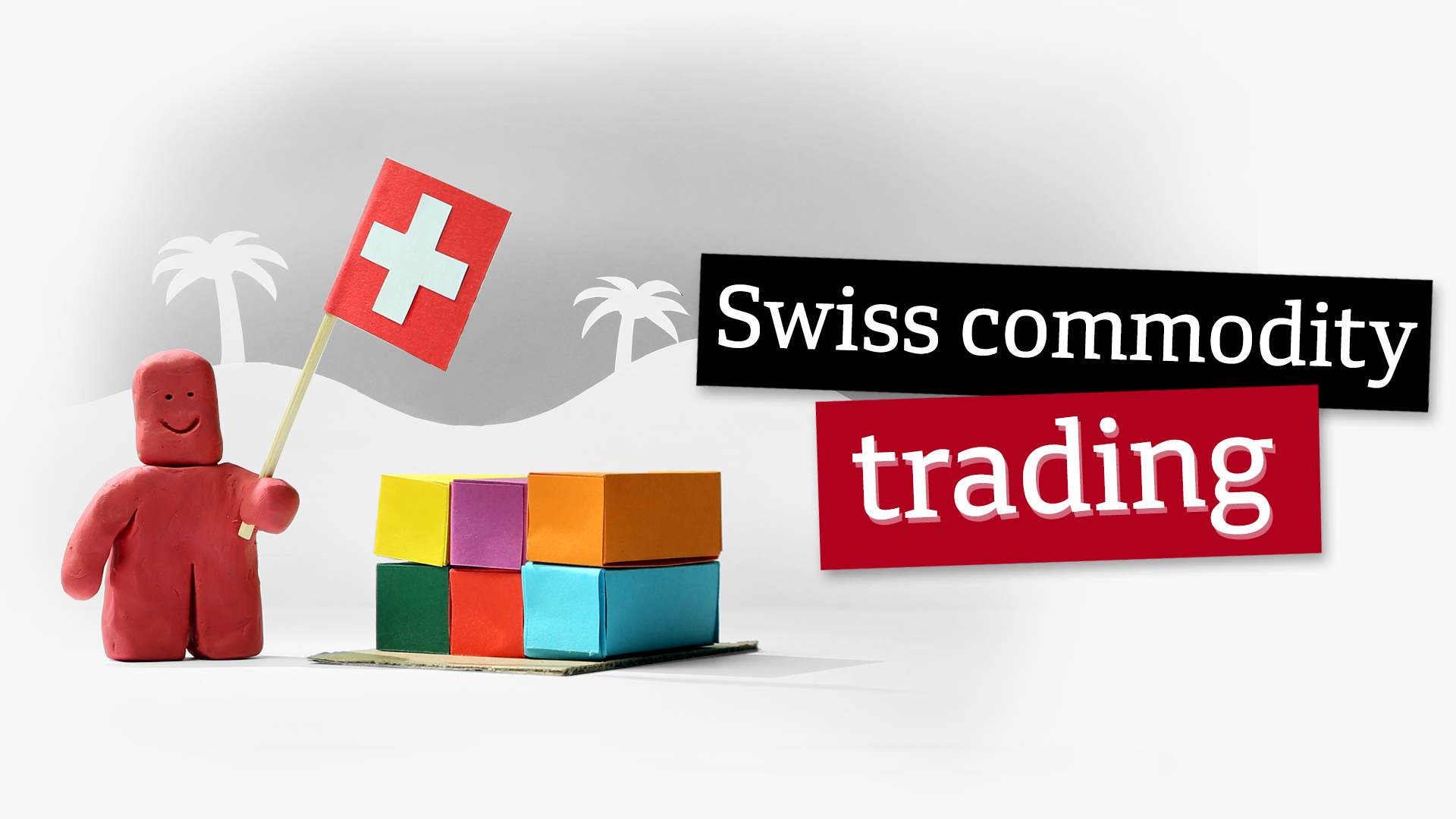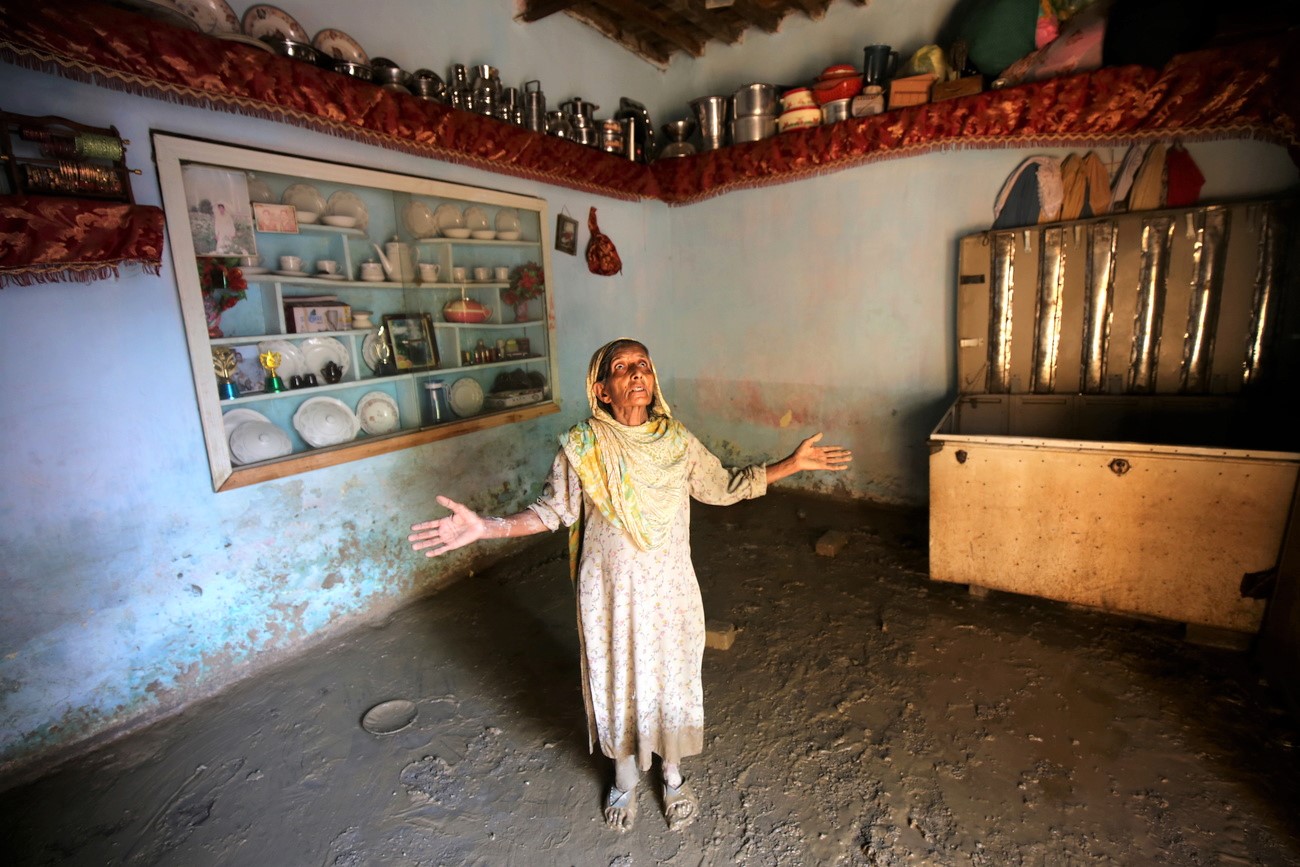
Switzerland becomes leading coal-trading hub

Around 40% of the world’s coal is bought and sold in Switzerland, according to a study. Swiss banks are among the top lenders to the coal business.
This year, coal production should exceed eight billion tonnes worldwide, an all-time high, according to forecasts by the International Energy Agency (IEA). Coal is produced mainly in China, India, Indonesia and the United States.
Switzerland is a major hub for coal trading with Swiss-based companies overseeing 40% of world trade, reveals a report by Swiss NGO Public Eye publishedExternal link on Monday.
It shows that Switzerland has 245 companies active in the trading and extraction of coal. These firms are mainly based in cantons Geneva (78), Ticino (55) and Zug (54). The remaining 58 companies are spread across the country.
Mining companies, which have either a headquarters or a trading arm in Switzerland, extract a total of 536 million tonnes of coal a year. These include global players like Glencore.
The extraction, transport and transformation of coal into electric power result in around 5.4 billion tonnes of CO2 emitted annually, the report said.
‘Carbon dioxide dealer’
Public Eye denounces the laxity of the Swiss authorities and Swiss banks, which finance these companies, despite declarations that they are massively reducing their investments.
“At the start of the climate conference in Sharm el-Sheikh, Switzerland must assume its responsibility as ‘carbon dioxide dealer’ and put in place an exit plan for this profitable business,” said Public Eye.

More
Big banks continue to pump money into coal projects
Swiss banks rank tenth as lenders to the coal industry, the report found. Since the 2015 Paris Agreement, they have lent $3.15 billion (CHF3.12 billion) to Swiss-based firms active in the coal industry, according to data provided by the research firm Profundo. In six years, the annual sums raised have increased by 72%.
Credit Suisse is the biggest lender in this market (over $2 billion), with clients such as Trafigura, Glencore and the Russian companies Sibanthracite and SUEK. It is followed by UBS ($818 million), the Zurich Cantonal Bank ($339 million) and the cantonal banks of Vaud and Geneva.

More
Commodity trading in Switzerland, explained
Intentions
In a statement to Swiss public television, RTS, Credit Suisse said it “recognises that financial flows must be brought into line with the objectives defined in the Paris Agreement”.
Switzerland’s second-largest bank says it has publicly committed to reducing funded emissions in oil, gas and coal by 49% by 2030 and 97% by 2050.
UBS told RTS that it also wanted to drastically reduce its fossil fuel commitments: “By 2030, UBS intends to reduce emissions financed by credits granted to companies in the fossil fuel sector by 71% (compared to the level of 2020).”
According to RTS, the finance ministry will soon ask multinationals to publish their carbon footprint generated by their activities, as well as the financial risk. If a government ordinance comes into force, companies will have to report on climate risks and their impact from 2024.

More
COP27 and the climate crisis: will rich countries pay?

In compliance with the JTI standards
More: SWI swissinfo.ch certified by the Journalism Trust Initiative






























You can find an overview of ongoing debates with our journalists here . Please join us!
If you want to start a conversation about a topic raised in this article or want to report factual errors, email us at english@swissinfo.ch.